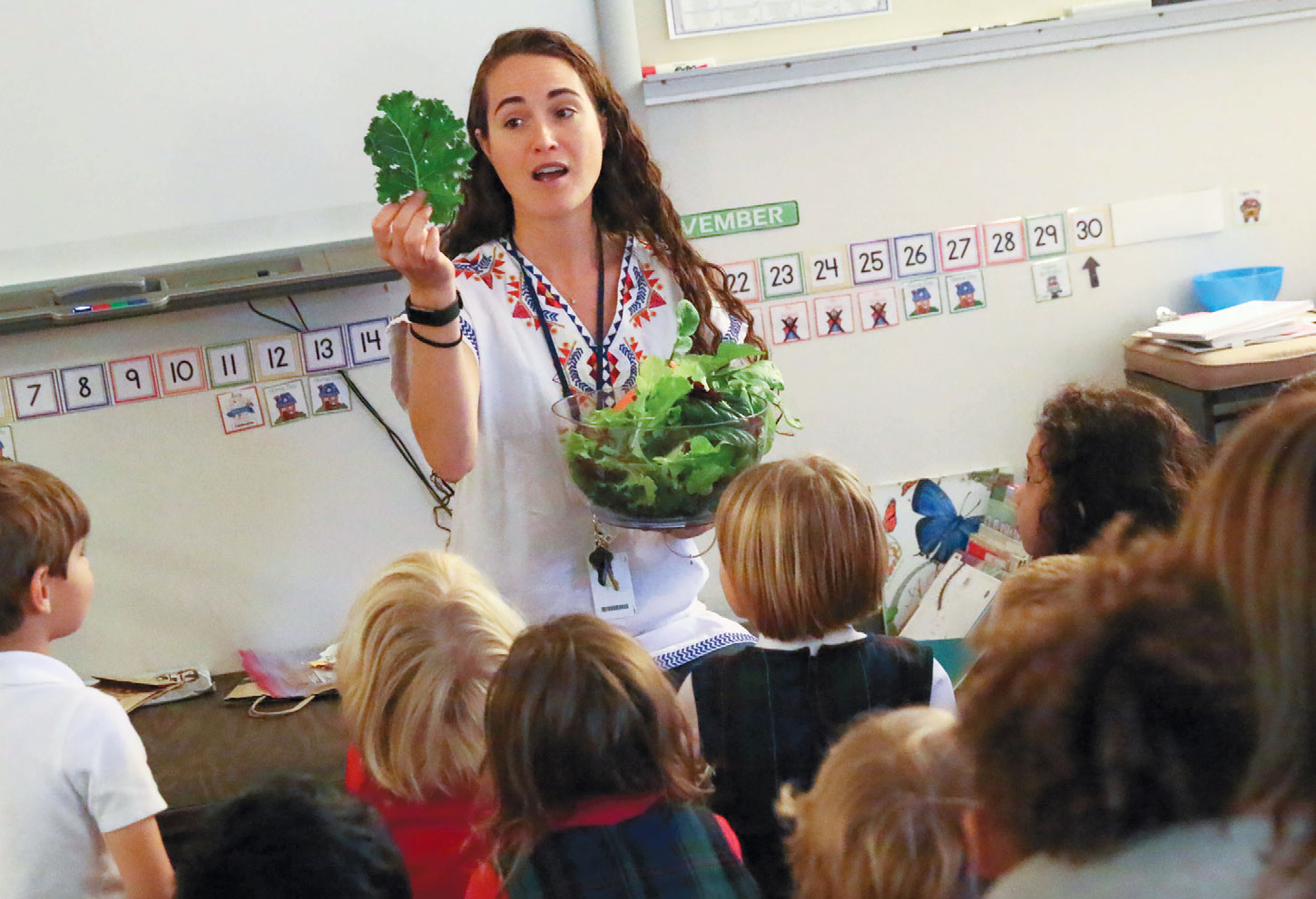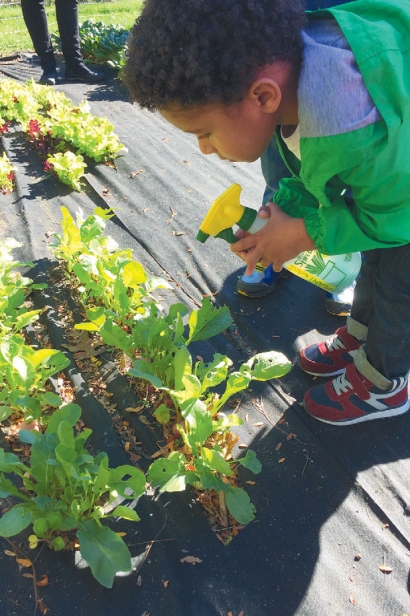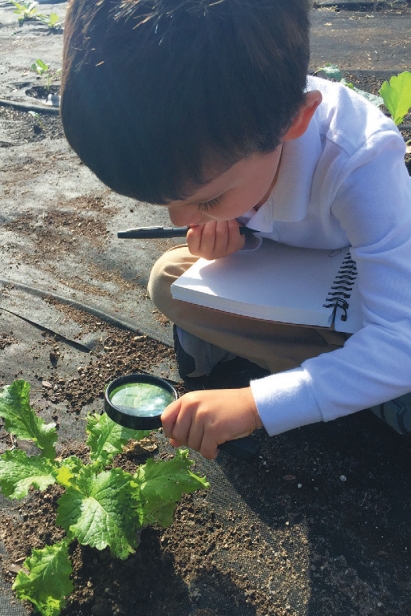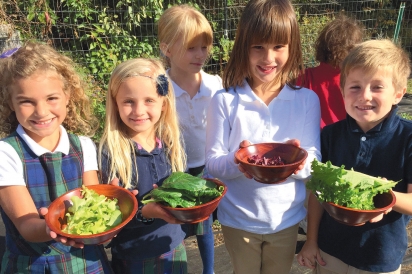The Wellington School Gardens
A garden is a classroom in and of itself. For Joya Elmore, director of gardens for environment-based learning at The Wellington School, the school gardens are a way to enrich the lives and lessons of students who interact in them. And, as students and teachers throughout the school focus on integrated wellness initiatives, the gardens offer opportunities for all to reconnect, observe and learn.
The Wellington School gardens stretch along the south side of a building just beside a playground—both receive their fair share of activity. A combination of raised and in-ground beds contains a wide variety of produce, depending on the time of year. Just this year six more raised beds were added and a new fence was constructed to enlarge the space where students can study or work in the gardens.
The early-summer planting included butter crunch lettuce, Swiss chard, broccoli, peas and strawberries.
“We planted some watermelon, which we’ll hopefully enjoy when we get back,” says Joya. “Same with zucchini and cantaloupe.
“Once school starts back in August we’ll get to harvest the last of the summer crops before clearing it out and doing fall planting,” says Joya.
Entering her second year as director of gardens, Joya’s approach is not to make gardening part of a specialized class, but instead to ensure all teachers at the school feel confident in their abilities to integrate the gardens into their own classroom curriculum. The gardens, ideally, act as a learning tool.
“For me it’s always been about teaching teachers how to do it,” says Joya. In alignment with the school’s focus on wellness initiatives, “we read a couple books deciding to focus on us as teachers first because we are the true models for students,” says Joya. “Now that we’ve had a year of focusing on us and setting the good example, next year will be a bigger focus on kids.”
Students in all three divisions of the school work on wellness through gratitude journals and unique electives like happiness, which connects happiness to, among other things, time outside.
“It’s cool to watch all of the stuff around gardening really grow,” says Joya.
Students enrolled at The Wellington School range from pre-K, around 3 years old, to high school. Joya hopes to find a place for each grade to engage with the gardens.
For students in the lower, or elementary, school, “it’s really helping them to connect back to their food source, giving them the opportunity to develop their own healthy habits,” says Joya.
When visiting the gardens with students in the lower school, Joya will often assign tasks or projects. “Some groups do some investigation or writing in the garden,” she says. Sometimes Joya divides up the students to work in groups on mini-garden lessons like how to weed, water or transplant.
Middle school students participated in an engineering project to expand the gardens. “They were very involved there,” says Joya.
Upper school, grades 9–12, has a voluntary garden club in which students can sign up to be involved in the gardens.
Eventually, Joya hopes to establish a “Budding Entrepreneur Program” where participating students could operate a farm stand and learn valuable skills pertaining to growing, harvesting, sales and customer service.
“To me gardening goes beyond just learning how to grow your own food,” says Joya. “It’s a chance for kids to see that food can be a product.”
“When things are ready to harvest, they’d be responsible for working with an adult to wash, weigh and package the product to sell at the farm stand at the end of the school day,” says Joya. “Someone can be doing accounting, keeping track of our records, what we’re selling, if it matches up with money and how much we made,” says Joya.
Money raised would go back into the garden program toward tools, soil, seeds or improvements for the next year.
Before moving to Columbus Joya worked as the director of a “Gardens 2 Schools” program with the Druid City Garden Project in Tuscaloosa, Alabama. There, she and her team partnered with area elementary schools, set up seven gardens and taught the schools how to use them as teaching tools. The impact in the community was great: researchers from the University of Alabama evaluated the program and found that overall body mass index decreased and test scores increased over time, among participants.
“It’s always been my passion,” says Joya.
At The Wellington School, Joya is able utilize resources like the school kitchen to showcase produce from harvest to plate.
“It’s been nice to connect garden to dining room,” says Joya. “There’s a focus on having a colorful plate and making good healthy choices,” she says.
Outside of cooking lessons and mealtime, produce is incorporated into science, math and other academic endeavors.
Activities like, “scaling up recipes for a class, pulling in the math and science of massaging kale leaves and putting lemon with it, how acidity breaks it down,” are ways to bring the garden into the classroom and apply them to real-world learning experiences.
“For me it’s all about that. Everyone needs opportunities to learn outside the classroom walls and the garden provides a full sensory experience.”
“I just love the fact that there is so much awe in at all,” says Joya. “That’s magical.”
The Wellington School
3650 Reed Rd., Columbus, Ohio; 614-457-7883









